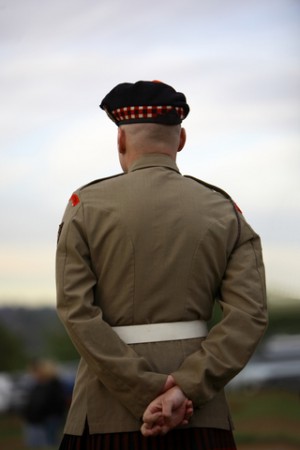Psychological issues
Services
In 2013 the Improving Access to Psychological Therapies (IAPT), an English NHS body, published, 'Veterans: Positive Practice Guide'. This highlighted the differing needs of Veterans in accessing mental health services. The Welsh Government has recognised these issues and has supported the establishment of Veterans' NHS Wales.
The prime aim of the service is to improve the mental health and well-being of veterans. The Welsh Government has committed nearly £0.5m year on year to ensure the service is sustainable. The director, Professor Jonathan Bisson has extensive experience of Military Psychiatry and Traumatic Stress Disorders, both as a clinician and researcher. He is involved in the assessment and management of veterans, offers support and supervision to the Principal Clinician and oversees the running of the Wales wide service. Jonathan was a Major in the British Army Medical Service before joining the NHS.
The service runs on a hub and spoke model. The hub is based in Cardiff and Dr Neil Kitchiner is responsible for the day to day running of Veterans' NHS Wales, including clinical supervision and training of the eight veterans’ therapists. He also undertakes assessment and where appropriate brief psychological therapy (16 sessions), and follow-up appointments. Neil is currently a serving Captain at 203 Field Hospital TA Centre, Llandaff North, Cardiff.
The remaining seven veterans’ therapists are positioned around Wales in order to offer services as close to the home of the client as possible. Veterans who live in Wales are able to self-refer by completing the submission form on the website. Telephone or email self-referrals are accepted, as are referrals from their GP or anyone else involved in their clinical care.

The IAPT Veterans positive practice guide recognises a number of factors that may be barriers to Veterans receiving appropriate mental health services:-
- High levels of social exclusion can mean that some Veterans do not register with GPs and therefore have poorer access to health care. Promoting self referral routes, and accepting referrals directly from ex-service charities, into IAPT services would be a valuable method of removing this barrier for veterans without access to GPs
- Veterans’ beliefs and behaviours may prevent them from receiving psychological therapies, such as:
- believing that mental health problems are shameful and so deliberately hiding symptoms from health professionals;
- believing that NHS professionals will not understand them or their service history
- believing that the effort, stigma and shame will outweigh the benefits of asking for and receiving help:
- self-medicating with alcohol in order to mask their moods or problems, and stop them being detected;
- mistakenly believing that psychological therapies are not effective for Veterans
- being disenchanted by previous exposure to mental health services in the military or NHS
- having difficulty accessing general health services in the first place (especially relevant for veterans who are socially excluded)
General Practitioners and other primary care professionals may inadvertently prevent veterans from accessing to psychological therapies services because they:
- may not understand that Veterans may have specific needs because of past military cultures
- may have time constraints in their surgeries that reduce the probability of them diagnosing veterans’ mental health problems effectively
- recognise symptoms of depression or anxiety disorders but fail to recognise that they can be treated with psychological therapies;
- believe mistakenly believe that psychological therapies are not effective for veterans;
- believe that treating any physical health problems is a higher priority than treating mental health problems and consequently do not refer to psychological therapy services.
- Specialist mental health services may inadvertently prevent Veterans from accessing services that provide psychological therapies because they:
- lack confidence in working with Veterans
- may be fearful that Veterans can be violent
- have concerns about their ability or skills to build a therapeutic relationship with Veterans
Veterans' NHS Wales has been established to help overcome some of these difficulties. The service is based within existing NHS and Social Care Services and fully integrated with the other services and agencies that cater for the health and social needs of veterans. The service is one part of the welfare pathway for veterans and adopts a stepped care approach to ensure veterans’ needs are addressed by the most appropriate agency.


